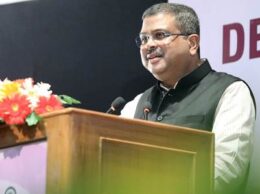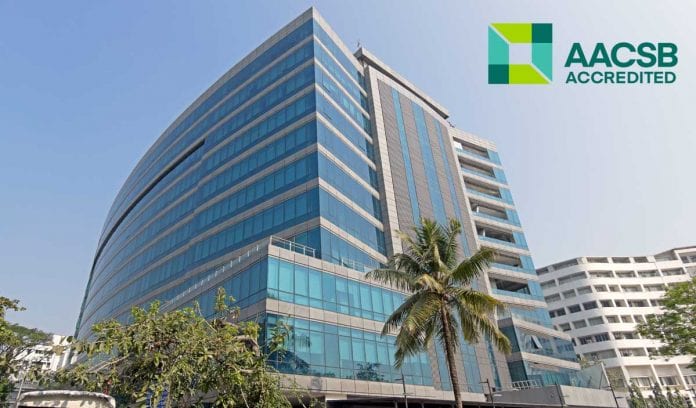MUMBAI, India — Dun & Bradstreet, a leading global provider of business decisioning data and analytics, along with UGRO Capital, a leading DataTech non-banking financial company (NBFC) specializing in lending to micro, small and medium enterprises (MSMEs), has unveiled the second edition of MSME Sampark. This half-yearly report highlights the MSME sector’s crucial role in India’s growth, as it contributes nearly 30% to GDP and employs over 150 million people, as the country experiences a steady GDP growth rate of 8.2% in 2023-24 and is among the fastest-growing major economies globally.
The comprehensive report, which examines over 39,000 MSMEs (including 12,000 micro-sized businesses) across seven key sectors over a three-year period, reveals that MSMEs continue their recovery post-pandemic. More than 50% of the studied sample recorded more than 10% year-over-year growth in sales from May 2021 to March 2024. The report also highlights the importance of formalisation and digitalisation in enhancing MSMEs’ access to credit and growth opportunities. Borrowings by MSMEs are increasing, largely through collateralized loans reflecting lenders’ confidence on their resilience and potential, pointing to the need for timely and affordable working capital.
Shachindra Nath, Founder and Managing Director, UGRO Capital, said, “NBFCs have significantly bolstered MSME growth, with a 15% CAGR in AUM over the past five years. Their ability to reach underserved markets with tailored financial solutions makes them vital to the MSME lending ecosystem. UGRO Capital, leveraging its data and technology-driven platform, has already disbursed loans to over 140,000 MSMEs. The MSME Sampark Report offers a clear view of how resilient and vital MSMEs are to India’s economy, reflecting the core belief – that ‘MSME Accha Hai’. With enhanced formalisation, credit access, and support from financial institutions, MSMEs are helping to lead the way toward a stronger, more prosperous India. MSME Sampark is more than just a report; it’s a tool for policymakers, financial institutions, and industry leaders to understand the evolving MSME landscape, and our goal is to continue enabling MSMEs to grow, create jobs, and contribute to India’s economic future.”
Avinash Gupta, Managing Director & CEO – India, Dun & Bradstreet, said, “As India’s contribution to global GDP is projected to double by 2029 compared to 2019, the growth prospects and accompanying shifts in consumption patterns will require MSMEs to adapt through innovation, technology adoption, and strategic changes. To grow and innovate, MSMEs would need access to credit and technology. MSMEs contribute around 30% to India’s GDP, but their share in non-food credit remains relatively low at around 6.0% in FY24. Government initiatives aimed at digitalisation and incorporating MSMEs’ digital footprints into credit decisions are expected to further enhance their access to credit, technology, and markets. In this context, the in-depth study of a large sample of MSMEs across India provides valuable insights to various stakeholders in the MSME ecosystem to monitor their growth and credit performance.”
The seven sectors studied in this report are Light Engineering, Food Processing, Electrical Equipment, Chemicals, Auto Components, Hospitality and Healthcare.
The MSME Segment: Where It Stands Now: The study reveals the trend of sales recovery is continuing strongly across sectors, indicating that the pandemic is fading into the past. Credit penetration appears healthy across all sectors, with Light Engineering being the dominant sector, followed by Electrical Equipment & Food Processing. Also, small businesses under the Micro segment have shown steady and increasing credit penetration, higher contribution of term loans, and larger ticket-sized (> Rs 10 lakh) loans reflecting lenders’ confidence in the resilience and potential of these MSMEs.
MSME’s Credit Standing: Despite elevated interest rates, credit growth to MSMEs remains strong. Compared to overall non-food bank credit growth at around 20% in FY24, the growth in credit by scheduled commercial banks to micro and small businesses stood at 14.7%, and to medium businesses it was 13.3%, being higher than large industries at 6.5%.
Formalization of Credit: Small businesses are rapidly moving into the formalisation lane, and this can be seen from the number of MSMEs registering on the UDYAM portal nearly doubling every year since its launch in FY21. For the MSME sector to increase its contribution to overall GDP it is essential that they move towards formalisation and increase in size.
Increasing Ticket Size of Credit: The ticket size of large loans taken out by MSMEs has increased post-pandemic and has risen from 24% in FY21 to 40% in FY24.
Women Entrepreneurs: Women MSMEs account for 20% of total MSMEs registered on UDYAM. This share increases when Informal Micro Enterprises (IMEs) are considered. As of January 2024, more than 71% IMEs were owned by women, and were contributing to more than 71% of employment since the portal’s inception in January 2023.
Access to Credit: Growth in sanctions of new loans and improved access to working capital is observed across the studied sample of MSMEs. The debt-to-turnover ratio of MSMEs has improved in the seven sectors for the quarter ending March 2024 compared to the quarter ending September 2023. The increase in the share of regular term loans from 57% in 2020 to 88% in 2023, along with the rise in the proportion of larger ticket loans (> Rs 10 lakhs) from 19% in 2020 to 40% in 2023 for micro enterprises, reflects lenders’ confidence in the resilience and potential of these firms.
Dr Arun Singh, Chief Global Economist – Dun & Bradstreet, said, “In the Union Budget for 2024-25, the government reiterated its focus on the development of MSMEs and labor-intensive manufacturing by offering a comprehensive package that includes funding, regulatory changes, technology support, and initiatives for women entrepreneurs. The initiatives taken towards technology adoption and digitalisation will further support the formalisation of MSMEs and improve their access to credit and markets.”








